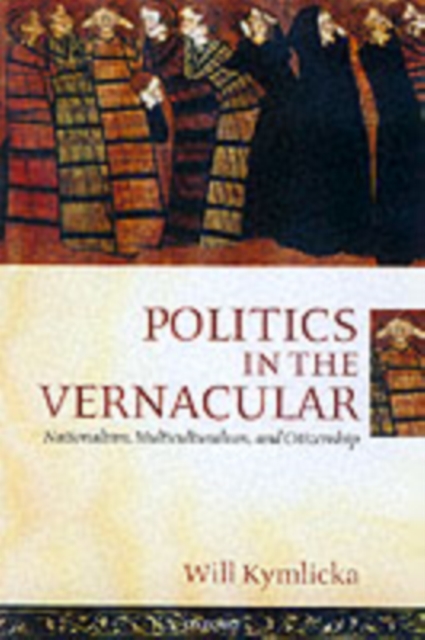
Politics in the Vernacular : Nationalism, Multiculturalism, and Citizenship Paperback / softback
by Will (Queen's National Scholar, Department of Philosophy, Queen's National Scholar, Depart Kymlicka
Paperback / softback
- Information
Description
This volume brings together eighteen of Will Kymlicka's recent essays on nationalism, multiculturalism and citizenship.
These essays expand on the well-known theory of minority rights first developed in his Multicultural Citizenship.
In these new essays, Kymlicka applies his theory to several pressing controversies regarding ethnic relations today, responds to some of his critics, and situates the debate over minority rights within the larger context of issues of nationalism, democratic citizenship and globalization.
The essays are divided into four sections. The first section summarizes 'the state of the debate' over minority rights, and explains how the debate has evolved over the past 15 years.
The second section explores the requirements of ethnocultural justice in a liberal democracy.
Kymlicka argues that the protection of individual human rights is insufficient to ensure justice between ethnocultural groups, and that minority rights must supplement human rights.
In particular, Kymlicka explores why some form of power-sharing (such as federalism) is often required to ensure justice for national minorities; why indigenous peoples have distinctive rights relating to economic development and environmental protection; and why we need to define fairer terms of integration for immigrants.
The third section focuses on nationalism. Kymlicka discusses some of the familiar misinterpretations and preconceptions which liberals have about nationalism, and defends the need to recognize that there are genuinely liberal forms of nationalism.
He discusses the familiar (but misleading) contrast between 'cosmopolitanism' and 'nationalism', and discusses why liberals have gradually moved towards a position that combines elements of both.
The final section explores how these increasing demands by ethnic and national groups for minority rights affect the practice of democratic citizenship.
Kymlicka surveys recent theories of citizenship, and raises questions about how they are challenged by ethnocultural diversity.
He emphasizes the importance of education as a site of conflict between demands for accommodating ethnocultural diversity and demands for promoting the common virtues and loyalties required by democratic citizenship. And, finally, he explores the extent to which 'globalization' requires us to think about citizenship in more global terms, or whether citizenship will remain tied to national institutions and political processes.
Taken together, these essays make a major contribution to enriching our understanding of the theory and practice of ethnocultural relations in Western democracies.
Information
-
Out of StockMore expected soonContact us for further information
- Format:Paperback / softback
- Pages:400 pages
- Publisher:Oxford University Press
- Publication Date:18/01/2001
- Category:
- ISBN:9780199240982
Information
-
Out of StockMore expected soonContact us for further information
- Format:Paperback / softback
- Pages:400 pages
- Publisher:Oxford University Press
- Publication Date:18/01/2001
- Category:
- ISBN:9780199240982